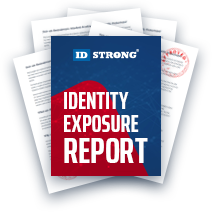Risks of Lost & Stolen Birth Certificate
Table of Contents
- By Greg Brown
- Published: Feb 13, 2023
- Last Updated: Feb 14, 2023

A few documents in every person’s life should be accounted for: social security cards, Medicare ID, and birth certificates. Should these critical papers fall into the wrong hands, predators can cause immense harm.
Birth certificates are vital documentation of a person’s life and identity. Initially, a person’s birth was just for tax records and military service. Compulsory registration of someone’s birth began in the United Kingdom as far back as the 1850s. The United States started its system in 1902 for census records. Some states, such as Virginia and Massachusetts, began collecting birth data way back in the early 1600s.
During WWII, most employers, like aircraft manufacturers, asked citizens for proof of their birth before hiring. By 1942 the War Manpower Commission stated that wartime workers no longer needed to show certificates. As time passed, parents, especially mothers, were aware of the importance of a birth certificate to secure their child’s birthright as citizens.
Birth Certificates
Certificates for live birth is an application nearly two pages long. The entire form has 58 questions and concerns the baby and its mother and father. There is a massive amount of information predators can take advantage of, not just about the person but relatives and medical information.
Some of the questions on a birth certificate:
- Name of the hospital and its location
- Child’s legal name
- Detailed Mother and Father’s information and legal name
- Residence and mailing address
- Medicare and Medicaid numbers and any congenital disabilities or medical conditions
Dangers of a Stolen Birth Certificate

Stolen birth certificates have continued to be a significant problem for citizens; fraudsters destroy lives with that information.
Automated messages sent from predators commonly target elderly and vulnerable people. The message states the victim is under investigation by the Social Security Administration for possible money laundering. Victims are “required” to send copies of their birth certificates and social security cards to an email address set up by the scammers. It is astonishing to know how many people are falling for this scam. Lists of elderly and vulnerable people are easily bought from other predators on the dark web.
Birth certificates hold much more information than just the name of the child. Personal Identifiable Information (PII) on birth certificates gives predators more than enough information to ruin plenty of lives.
The first most malicious consequence of a stolen birth certificate is identity theft.
Child identity theft is one of the more attractive targets for predators. Several reasons exist for the popularity of stealing a child’s identity: First, children do not have credit histories or arrest records, making them a clean slate for opening charge and bank accounts. Second, parents usually never monitor their child’s identity for suspicious activity. Third, fraud against a child usually goes unnoticed until they turn eighteen.
Identity theft is a skyrocketing problem for unprotected citizens. Birth certificates allow predators to open credit cards in your name, take out bank loans and even file false tax reports. Scammers use several forms of identity theft once they have a birth certificate.
- Financial theft is the most common scam, allowing predators to open or empty victims’ bank accounts. If there are unexplained charges or your credit score suddenly drops, this is a side effect of financial theft.
- Account takeover is another common form of identity theft. Scammers take over social media, email, and online financial accounts. These accounts contain plenty of sensitive information to continue a predator’s fraud.
- Medical ID theft is when scammers use birth certificates to steal or open Medicare and Medicaid Services. Medical ID theft and fraud can be devasting to the elderly.
Predators target birth certificates because they are easy to get on the dark web for a price. Scammers target everyone on the certificates, from parents to anyone listed. With the abundant information, predators create fake online accounts to scam more people. Social engineering is used to keep targets from becoming suspicious.
Warning Signs
There are always signs of suspicious activity vulnerable people need to be aware of. If someone starts using your birth certificate, the warning signs will not be evident immediately. Everyone should stay vigilant with every critical account they have.
- Credit inquiries start appearing on your credit report. If you are locked out of accounts, assume the worst and start to investigate.
- Insurance claims go unanswered, and benefits do not arrive.
- IRS notifies you of taxes being filed, or you receive tax documents from unfamiliar employers.
- The mail you typically receive goes missing.
Protect Yourself
Most people do not protect birth certificates as they do social security cards or medical ID cards. This is an open invitation to predators who know how to purchase birth certificates on the dark web. If you are sure your certificate has been stolen or copied, it is essential to act quickly.
Birth certificate fraud is difficult to detect and even more challenging to find the perpetrators. The first step is to report the loss to your state’s vital statistics office. Use this tool to locate and report a stolen certificate. If you or a family member’s identity has been stolen, head to the FTC identity theft office for a recovery action plan. The FTC can also provide a report backing up your identity theft claims.
With a valid birth certificate, predators will undoubtedly begin opening new social media and financial accounts. Victims should immediately put a freeze on financial accounts. Banks and financial institutions will close your current accounts, transfer funds, and open new checking, savings, and investment accounts. These actions are a huge annoyance. However, it is the consequence of stolen identity.
Filing a police report, constantly monitoring your credit report, and replacing old passwords for every online account are additional actions victims can take. The key is acting quickly.
Final Word
Birth certificates are one of the essential documents people must protect. There are plenty of online resources to help secure life’s papers. Valid birth certificates offer predators a host of opportunities to scam and cheat people out of their life savings and medical benefits. Scammers will not stop at the top name on the certificate. Any person listed is in danger of losing their hard-fought identity.



















































































































